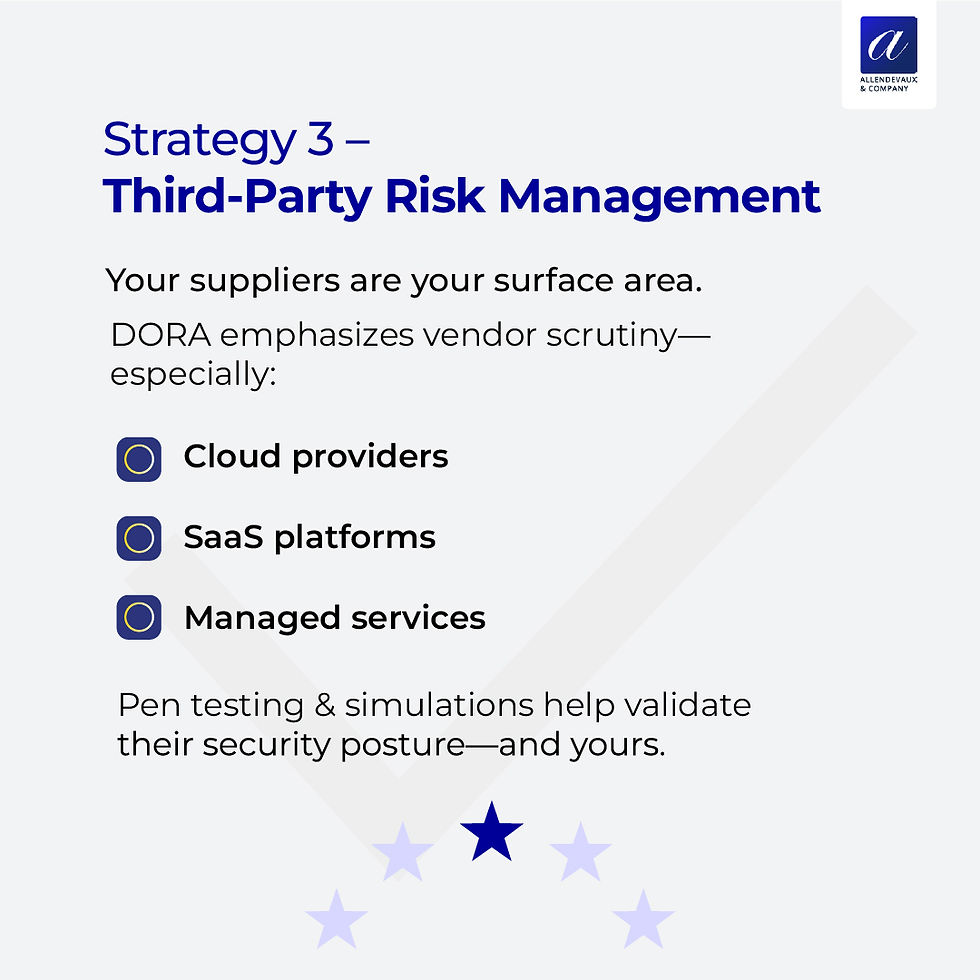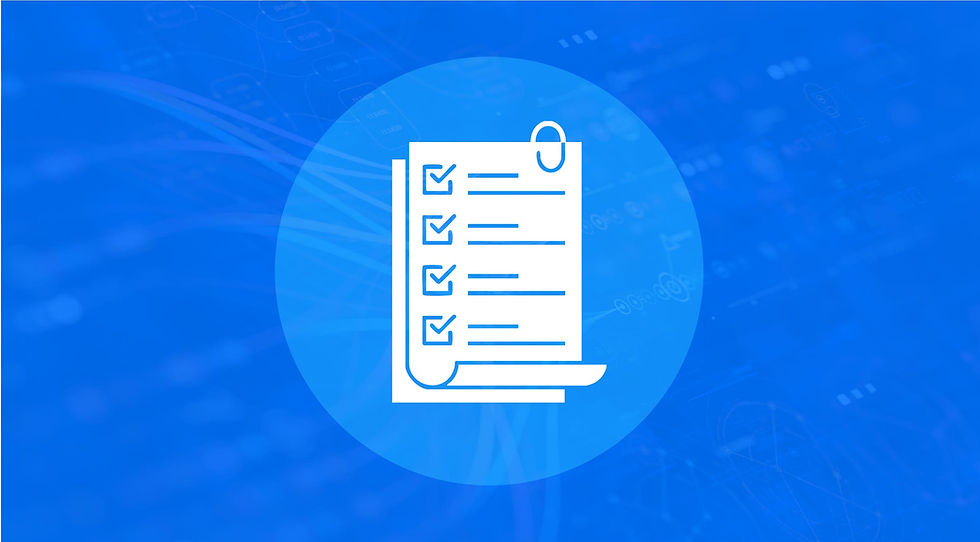DORA Compliance 2025: 3 Strategies for Cyber Resilience
- bakhshishsingh
- Sep 24, 2025
- 3 min read
As the financial sector becomes more digitized and interdependent, the need for robust cybersecurity and operational resilience has never been greater. Enter the Digital Operational Resilience Act (DORA) — the European Union’s regulatory framework that is reshaping how financial institutions manage cyber risk.
Unlike traditional compliance standards, DORA is not just a checkbox. It’s a strategic opportunity to build long-term resilience, mitigate third-party risks, and embed cybersecurity into business DNA
In this post, we explore three essential strategies that financial organizations must implement to meet DORA’s expectations and future-proof their cybersecurity posture.
Why DORA Matters

DORA establishes a comprehensive framework to manage and withstand ICT-related disruptions across the financial sector. From banks to insurance firms and payment providers, all institutions operating in the EU are now subject to these stringent operational resilience requirements.
But it’s more than compliance — it’s about building a culture of cyber hygiene, preparedness, and trust.
DORA enables organizations to:
Identify systemic risks early
Close security gaps across the enterprise
Improve incident response planning
Harden the digital supply chain
When implemented correctly, DORA doesn’t slow down operations — it strengthens them
Strategy 1: Harden Operational Resilience

One of the pillars of DORA is the requirement for organizations to maintain a central repository of third-party ICT data. This includes:
Vendor profiles and risk ratings
Contact and contract metadata
Service-level agreements (SLAs)
Dependency mappings
By centralizing this information, businesses gain clear visibility into their operational exposure and can act quickly in the event of a disruption.
🔐 Tip: Treat this repository not just as a data store — but as your live incident response playbook. When something breaks, you’ll know who to contact, what services are impacted, and how to contain the threat.
Strategy 2: Centralize ICT Information Governance

Today’s financial institutions operate across a sprawling ecosystem of cloud providers, SaaS platforms, and managed service vendors. Each digital dependency introduces a new layer of risk.
DORA mandates clear monitoring and governance of these suppliers, including:
Defined responsibilities for ICT service delivery
Documentation of access rights, change controls, and escalation paths
Regular audits and performance reviews
Centralizing ICT governance ensures that security doesn’t become fragmented across departments or business units. It also enables faster decision-making during incidents and reduces miscommunication with vendors
Strategy 3: Strengthen Third-Party Risk Management

Your vendors are part of your attack surface — and DORA knows it. That’s why the regulation places strong emphasis on third-party risk management, including:
Continuous risk scoring and categorization of vendors
Formal onboarding and offboarding procedures
Mandatory penetration testing and simulation exercises
Exit strategies in case of service termination or breach
Cybersecurity leaders must go beyond trust and implement “trust but verify” models when it comes to partners.
🛡 DORA pushes accountability up the supply chain, encouraging firms to demand the same level of resilience from their vendors as they do internally
DORA: More Than a Regulation

DORA isn’t just another set of technical controls — it’s a strategic advantage for those who embrace it.
Organizations that proactively align their cybersecurity goals with business risk will be better positioned to:
Fortify their digital supply chain
Avoid regulatory penalties
Inspire confidence among clients and stakeholders
Reduce recovery time during outages
By embedding resilience into everyday processes, financial institutions can turn DORA from a burden into a competitive differentiator.
Need Help Aligning with DORA?
At Allendevaux & Company, we help financial institutions navigate the complexities of DORA by turning compliance into clarity. Our cybersecurity consultants specialize in operational resilience, third-party risk, and ICT governance — ensuring you’re not just compliant, but resilient.
👉 Contact us today to build a DORA-aligned cyber strategy that drives value beyond regulation.





Comments